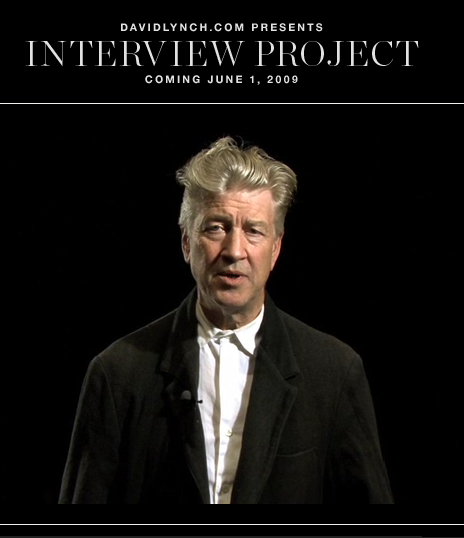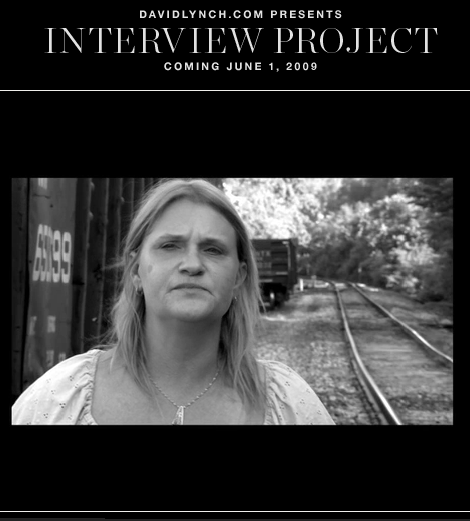Interview Project: David Lynch's New Narrative Experiment
 Tuesday, May 26, 2009 at 07:02PM
Tuesday, May 26, 2009 at 07:02PM 
What were my dreams as I child?
What am I most proud of?
What are my plans for the future?
How would I like to be remembered?
What is the most important thing in my life?
Do I have any regrets?
When did I first experience death?
On June 1, people all across America will share their answers to these questions when David Lynch’s new “Interview Project” debuts.
“Interview Project” features 121 interviews captured throughout America. One 20,000 mile road trip over 70 days. Each personal narrative is three-to-five minutes in length.

A new interview will be released every three days for the next year. You can read more about the series on About.com.
If the past year is any indication, it’s clear an enormous shift in video storytelling is occurring: personal narratives is one heck of a shortcut to create emotional connections with viewers.
Can you imagine how powerful it would be if organizations started incorporating short narratives into their internal and external communications strategies?
Organizations have databases for numbers. Why not a database of stories? Why not have a narrative "Story Center?"
Imagine a story center where short narratives like those in the “Interview Project” explored new ideas, concepts, values, challenges, community projects, and more with employees, potential recruits, shareholders and customers.
Personally, I think we're just beginning the journey.
What do you think?
Are we entering a period where video stories are playing a critical role in communicating? Will new video technology shape how organizations communicate, motivate, and inspire others?
Am I too far off? Does this make sense? I'd love to hear your thoughts.
---Tom




Reader Comments (4)
Let's hope it can and does start to change the way corporations think about the value of storytelling. Unfortunately, the pessimistic realist in me tends to think that in the current economic situation, many corporations view communications and storytelling as dispensable and unimportant to the bottom line.
It used to be (wow, what an old guy statement) that institutional memory was a valued corporate asset. This is where I think your "story center" idea has legs, and would prove indispensable to the corporation with enough courage and foresight to invest in developing one.
Let's hope that David Lynch isn't just hailed as ahead of his time again... and work towards making it happen!
I'm sure David Lynch may be ahead of his time but that's ok...we always need pathfinders leading the way. And you're spot on about "institutional memory." I remember many of the larger organizations having an "archivist" on board to keep many of the memories alive for new hires and others.
My bones say we're returning to a simpler time in video. Time will tell!
Thanks for stopping by and sharing your thoughts...
Tom
I love that quote Tom.
Are we entering a period where video stories are playing a critical role in communicating?
For sure, I think we are. The fusion of the social media Internet with the accessibilty for people to tell their stories, be that their dreams and ambitions, their ideas and inspirations, or all manner of expressions, create such a powerful tool for organisations to harness and broadcast both from employee and customer perspective.
Bring it on!
Yes, the tools are here and becoming mainstream overnight.
The question is: how will we embrace them?
Thanks for sharing,
Tom